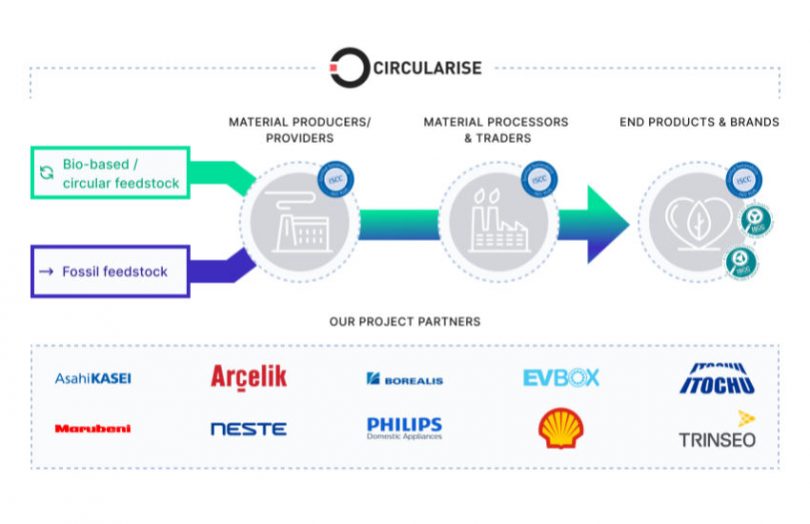Today blockchain sustainability startup Circularise announced a joint blockchain pilot project with certification scheme ISCC and ten firms. The project aims to use blockchain to complement the sustainability certification, making the audit of sustainability claims more straightforward and reliable.
Netherlands-based Circularise worked with existing partner Marubeni to bring together the ten firms. The companies are material firms Asahi Kasei, Borealis, Neste, Trinseo and Shell, appliance brands Arcelik, Philips Domestic Appliances and EVBox, as well as trading companies Marubeni and Itochu.
Logging the ISCC sustainability certificates on a public blockchain creates an immutable record of the sustainability claims associated with materials, enabling them to be tracked as the material moves through the supply chain.
Companies “can use blockchain and smart contracts to store balances, record transactions, and apply mass balance rules,” said Mesbah Sabur, Circularise’s Founder. “Every transaction is fully traceable. Auditors can therefore rely on the blockchain for parts of the audit,” said Mesbah Sabur, Circularise’s Founder.
Mass balance is a methodology for determining how much recycled materials are used in a product. It’s particularly relevant for chemicals that might have a proportion of input materials (feedstock) that are recycled and some that are based on fossil fuels but are mixed during production. However, the ratio of inputs that are recycled should be known. It’s seen as a path to transition away from entirely fossil-fuel-based plastics rather than an abrupt shift.
If say, half of the inputs are recycled, it’s possible that one item could be 90% recycled and another only 10% recycled. Whether or not the sustainability claims are useful depends in part on how the mass balance bookkeeping is applied, and some have concerns about that.
We previously asked Circularise how it creates a digital twin of the raw materials. It says it uses a combination of QR codes, RFIDs, NFC, chemical tracers, and DNA to track the plastic.
Other companies exploring blockchain for plastics recycling include SAP’s GreenToken project, Security Matters and Circulor.






